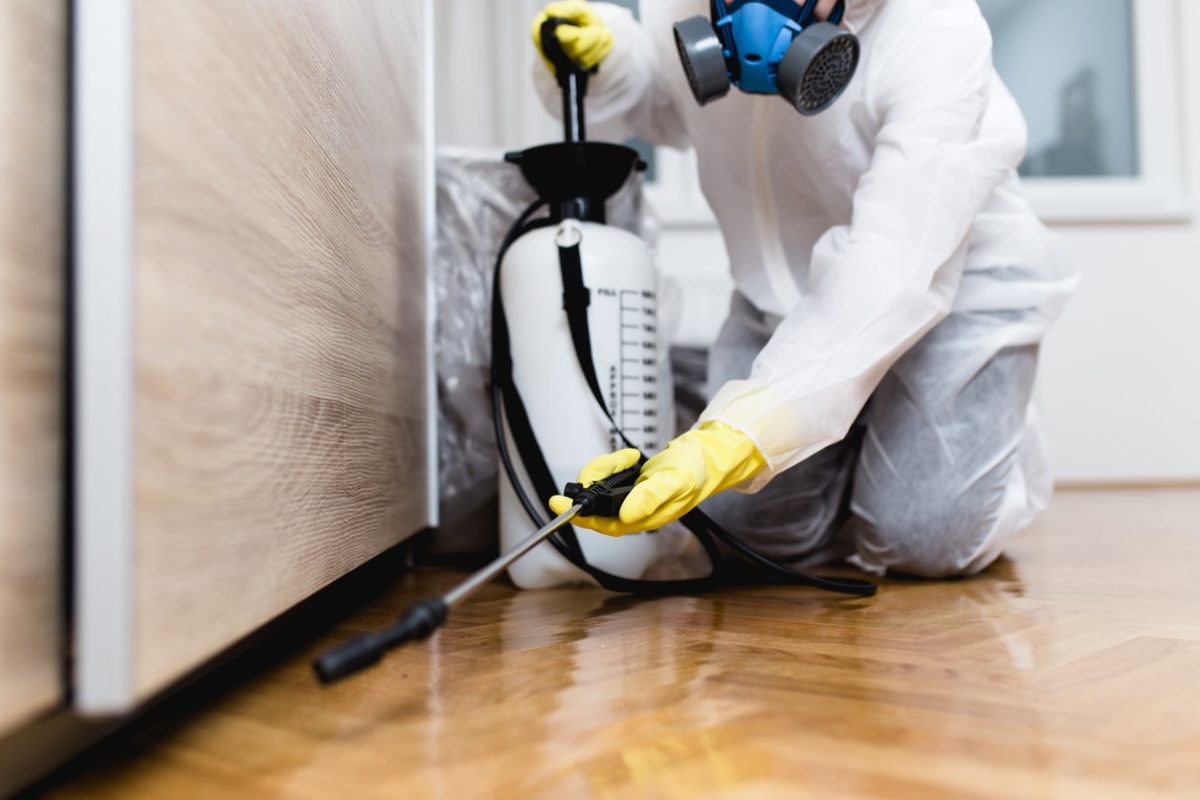High-quality Pest Control in Port Charlotte to keep your space pest-free.
High-quality Pest Control in Port Charlotte to keep your space pest-free.
Blog Article
Checking Out Cutting-edge Techniques and Products for Effective Insect Control
The landscape of insect control is advancing, noted by the emergence of innovative strategies and items made to improve performance and sustainability. From smart traps equipped with advanced surveillance systems to organic approaches that use all-natural predators, these developments provide a standard shift in how we approach pest monitoring.
Smart Traps and Monitoring Systems
Exactly how can modern-day technology enhance insect monitoring? One considerable improvement is the development of clever catches and monitoring systems, which offer real-time information and analytics for efficient insect control. These systems utilize sensing units and cordless innovation to identify pest task, notifying residential property supervisors and insect control professionals to problems before they rise.
Smart traps are furnished with features such as lure stations that draw in pests and capture them efficiently. These catches can be kept track of from another location, enabling prompt interventions and decreasing the requirement for considerable chemical applications. In addition, the combination of artificial intelligence algorithms makes it possible for these systems to distinguish in between target pests and non-target types, enhancing the precision of pest control procedures.
Additionally, the information collected from smart traps can be analyzed to determine patterns in parasite actions and ecological variables adding to problems (Pest Control in Port Charlotte). This info is very useful for developing targeted pest monitoring approaches customized to specific environments. By embracing clever catches and monitoring systems, pest control professionals can enhance their operational performance and lower the eco-friendly effect of insect administration, eventually resulting in safer and more lasting methods in the market
Biological Parasite Control Techniques
Utilizing all-natural killers and bloodsuckers, biological pest control approaches provide an eco-friendly option to chemical therapies. This technique includes the intro or enhancement of certain microorganisms that can naturally manage bug populaces, consequently reducing dependence on artificial pesticides. Typical examples include making use of ladybugs to control aphid problems and parasitical wasps to target caterpillars.

Biological control can be classified right into three primary methods: classic, augmentative, and conservation. Timeless biological control includes importing all-natural enemies from the insect's indigenous environment, while augmentative control includes enhancing the population of existing all-natural adversaries with releases. Conservation approaches concentrate on producing conditions that support these valuable organisms in the community.
The performance of organic insect control rests on comprehending the complex interactions within communities. It usually needs a detailed evaluation of insect characteristics and the life cycles of both the parasites and their all-natural opponents. While biological methods might not offer instant outcomes like chemical choices, they add to long-lasting insect monitoring and community health and wellness. As understanding of environmental concerns grows, biological pest control approaches are increasingly acknowledged for their lasting function in incorporated parasite administration programs.
Eco-Friendly Chemical Alternatives
Eco-friendly chemical alternatives provide a viable solution for pest monitoring that decreases webpage ecological effect while successfully managing insect populaces. These choices are acquired from all-natural sources and are thoroughly formulated to target specific parasites without harming valuable microorganisms, making them a crucial part of sustainable parasite control approaches.
Amongst the most effective eco-friendly alternatives are plant-based insecticides, such as neem oil and pyrethrin, which are originated from the seeds and blossoms of different plants. These substances interfere with the life cycles of pests, reducing their check this populations without the toxic results connected with conventional pesticides - Pest Control in Port Charlotte. Additionally, essential oils like pepper mint and clove oil exhibit repellent homes, further improving their energy in insect administration

Furthermore, eco-friendly chemical alternatives frequently damage Website down faster in the setting, lowering the risk of soil and water contamination. This particular aligns with the raising consumer demand for lasting techniques in agriculture and metropolitan bug control. As study remains to breakthrough, the growth of innovative environment-friendly solutions will certainly further improve effectiveness and widen application locations, making it possible for pest management professionals to adopt greener, more accountable techniques in their methods while guarding human wellness and the setting.
Scent Disruption Techniques
Another innovative approach in sustainable pest monitoring is using pheromone disruption techniques. These approaches manipulate the all-natural chemical signals, or pheromones, that bugs use for communication, particularly in mating actions. By interrupting these signals, bug populaces can be efficiently handled without resorting to hazardous chemicals.
Pheromone catches are generally utilized in this technique. These traps use artificial versions of insect pheromones to lure male pests, therefore minimizing their capability to locate women and replicate. In time, this can bring about a substantial decline in pest populaces. In addition, the launch of repellent pheromones can develop confusion among pests, even more inhibiting their breeding procedures - Pest Control in Port Charlotte.

Integrated Insect Monitoring Strategies
Reliable pest control commonly calls for an extensive technique, and Integrated Parasite Monitoring (IPM) techniques give a framework for accomplishing this objective. IPM incorporates numerous monitoring practices to reduce bug populaces while reducing reliance on chemical pesticides. This diverse technique starts with thorough monitoring and identification of bugs, enabling targeted treatments based on details parasite stress.
Cultural practices, such as crop rotation and hygiene, play a vital role in avoiding bug facility. Biological controls, including all-natural killers and parasitoids, are employed to keep parasite populaces at convenient degrees. When essential, careful chemical therapies are used, highlighting reduced poisoning to non-target varieties and the environment.
By employing this holistic strategy, IPM not only boosts bug control efficiency yet also adds to long-lasting ecological equilibrium. Ultimately, Integrated Bug Management represents a forward-thinking solution that lines up agricultural efficiency with environmental stewardship, making it necessary in contemporary bug control methods.

Verdict
In conclusion, the combination of cutting-edge methods and products for efficient pest control represents a considerable advancement in sustainable parasite administration. Smart traps and keeping track of systems, biological pest control approaches, green chemical options, and scent disturbance methods collectively improve the performance of parasite monitoring strategies.
Report this page